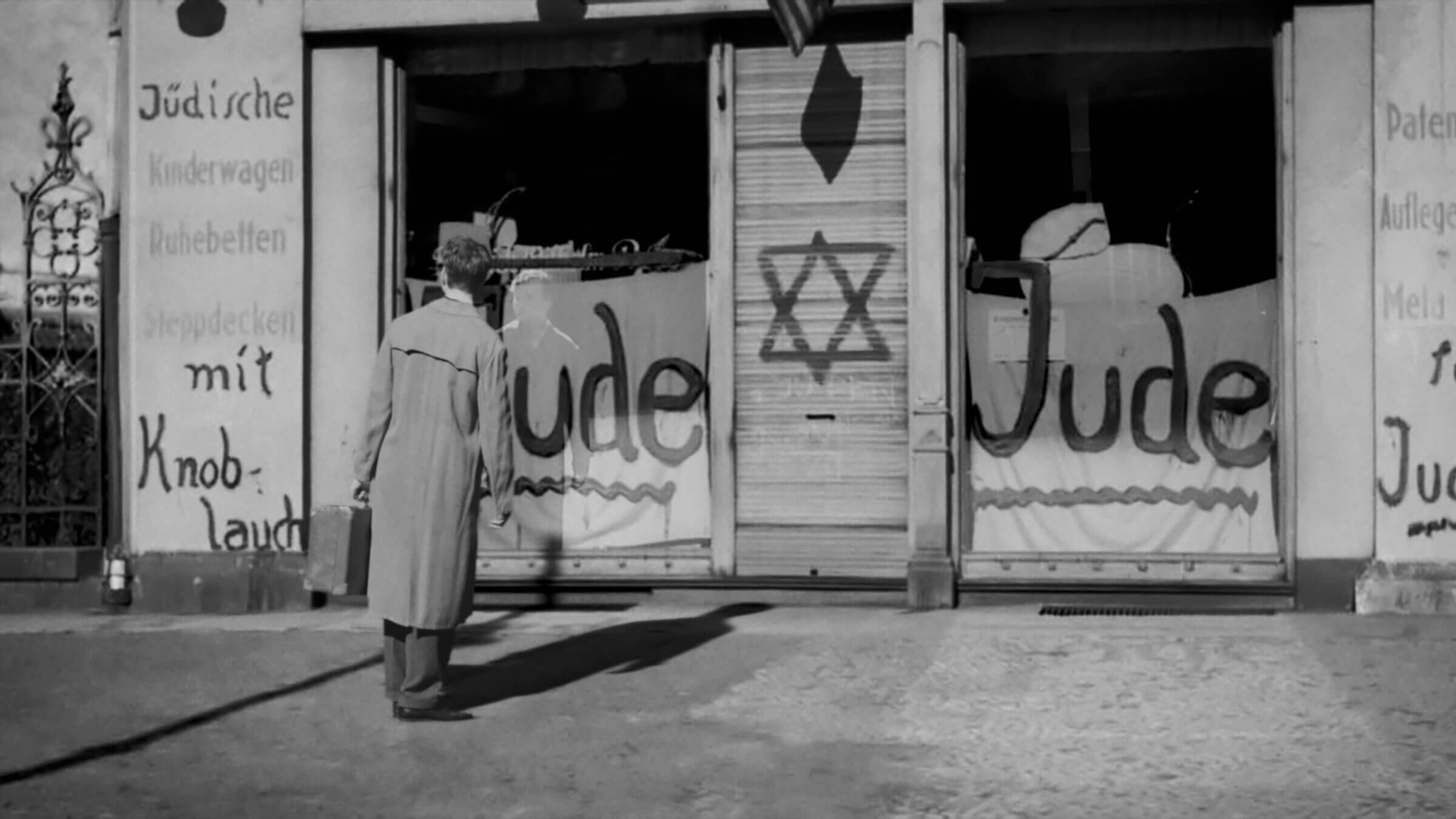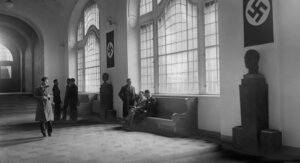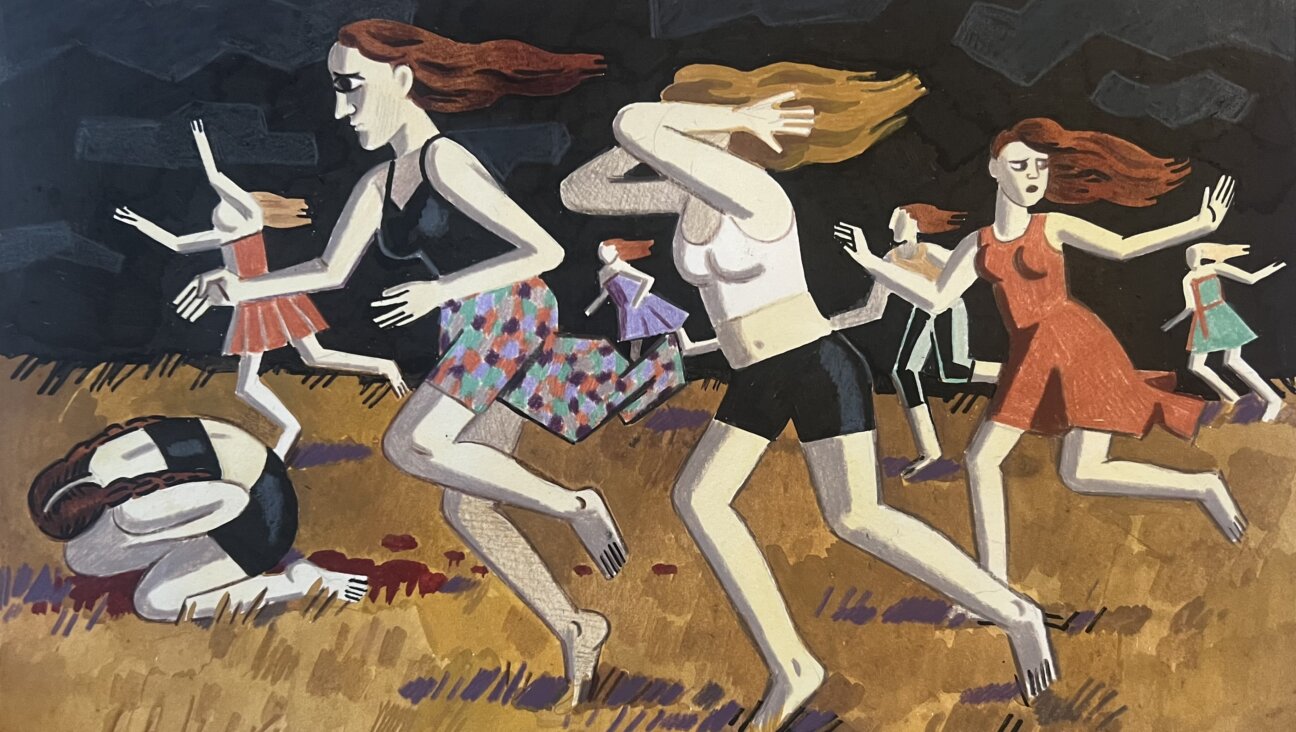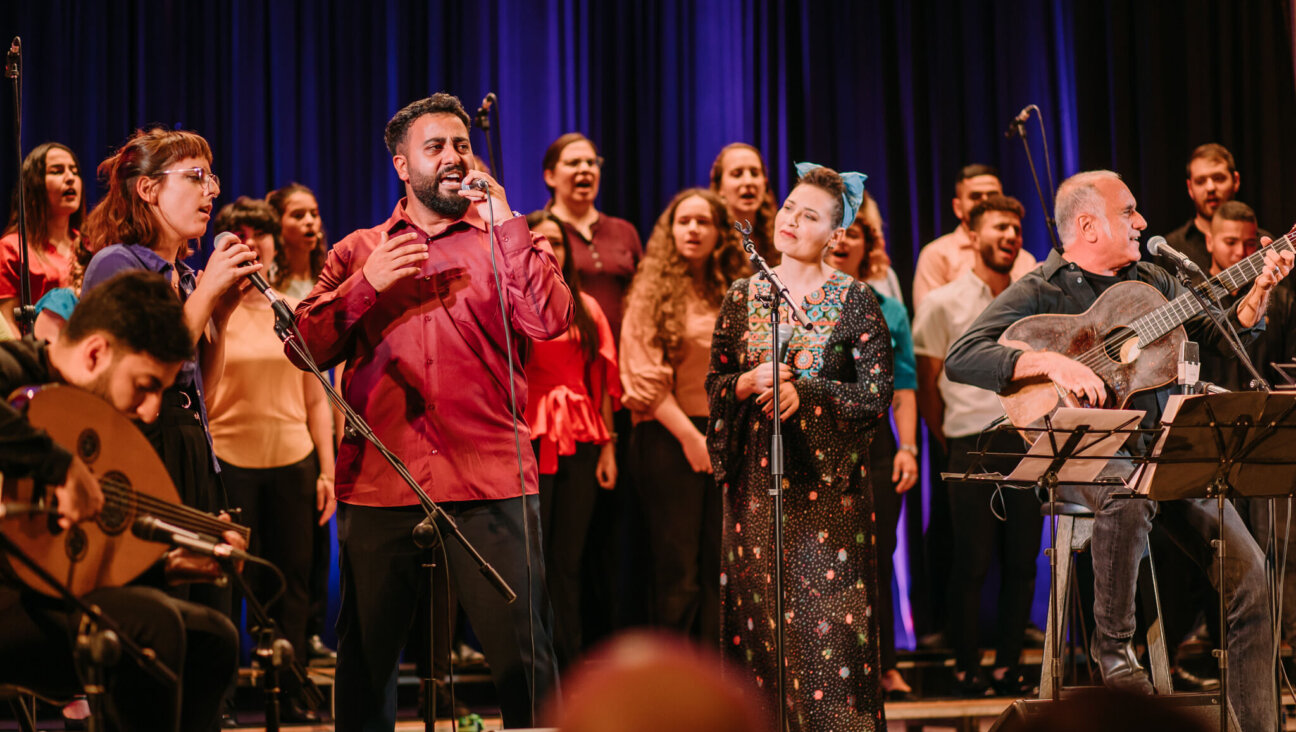A life of music and promise shattered by the Holocaust in an unforgettable film
‘Winter Journey’ is a compelling and original adaptation of Martin Goldsmith’s ‘The Inextinguishable Symphony’

‘Winter Journey,’ starring Bruno Ganz, is an adaptation of Martin Goldsmith’s ‘The Inextinguishable Symphony.’ Courtesy of ChaiFlicks
Winter Journey, with its striking narrative structure that marries fiction and documentary, is one of the most compelling films I’ve seen in a long time. But this is no standard docu-drama; it’s a new genre, or at least new to me.
In his final role, the always extraordinary, late Bruno Ganz (Downfall, The Reader, Amnesia), plays a man who is a widower, a father and Holocaust survivor.
Addressing the shades of mourning on many levels, the movie brings to life a haunting love story and a little known historical chapter about life for Jewish musicians, indeed, all Jewish performing artists, under the Third Reich. Taking its title from Franz Schubert’s Winterreise, it is also an ode to the enduring power of great music.
American radio host Martin Goldsmith, best known as classical music host on NPR and Sirius XM, never fully understood what happened to his parents before they escaped from Germany in 1941 or how those unspoken recollections cast a long shadow that informed their lives and those of Martin and his brother Peter. The silence was defining.
Based on Goldsmith’s 2007 family memoir, The Inextinguishable Symphony: A True Story of Music and Love in Nazi Germany, and co-helmed by Danish director Anders Østergaard and Erzsébet Rácz, the film follows Goldsmith as he interviews his father, Georg (Ganz). Their nuanced conversation touches on irretrievable loss and the nature of choice in a world gone mad.
It’s an uncannily timely film, not in its specifics, but more profoundly, its brutal ethos. We never see Goldsmith; nevertheless, his interrogating voice makes him a fully realized presence. Perhaps all the more vividly present precisely because he remains invisible.
Much of the film, set in Georg’s flower-filled backyard in Tucson, is a straightforward Q & A based on the interviews Martin Goldsmith conducted with his father for the book.
Moving backwards and forwards in time and place — from contemporary America to l930s Germany — we view actors reenacting scenes of the past; at other points they’re figures, sometimes in motion, sometimes immobilized inside black and white stills or archival footage. Snippets of period piece films, accompanied by English subtitles, also help to set the tone and mood.

The events leading up to and following the 1935 Nuremberg Laws form the film’s centerpiece. Georg, a talented flutist and Rosemarie, a gifted viola player, who later became his wife, were no longer allowed to perform in German orchestras for mixed audiences. Instead, like other professional Jewish instrumentalists, they were forced into a Jewish symphony where they were paid a living wage but under the auspices of the Jewish Cultural Federation, an insidious propaganda organization fully controlled by the Reich Chamber of Culture.
Georg had an ambivalent relationship to his Jewishness. He denied its existence or, more precisely, seemed to forget about it or pretend that he had forgotten it. When Martin reminds him that he, Georg, had a bar mitzvah, he feigns vagueness, confusion, and claims he can’t recall.
“I never considered myself a Jew,” he says at one point.
Even after Kristallnacht, he continued to believe — or tried to believe — in the possibility of a cultivated Germany unified in its love of the arts. “Sometimes you take a risk for what you love,” he remarks cryptically. The soundtrack, which includes music by Beethoven, Brahms, Telemann, Nielsen and Tchaikovsky, is exquisite, spectral and oddly desperate.
As he looks back, Georg paints a picture of a halcyon, fully assimilated boyhood in a bucolic Oldenburg. For him, viewing the opera, The Magic Flute, was the turning point, launching his life’s trajectory. At his university he was considered a promising flutist, but expelled nonetheless because he was a Jew.
Still, he forged ahead with the Jewish orchestra, where he met and fell in love with Rosemarie. They frolicked about the streets of Berlin, provocatively violating Nazi curfews; within short order they were living together. In one of the few light moments, Georg fondly recalls the first time he and Rosemarie made love. “Too much information,” Martin tells him.
Martin clearly identifies with his father, but there are also undercurrents of suppressed anger. Martin resents all that his father withheld over a lifetime. Not given to personal disclosure, George is a reluctant, almost begrudging, interviewee.
The most unnerving encounter between father and son centers on Georg’s career path in America. While Rosemarie pursued her musical passion, playing in a few orchestras, Georg, like his father and grandfather, sold furniture, a profession he abhorred for more than 35 years prior to his retirement.
“Somebody’s got to make a living,” he says, though it seems his pragmatism had more to do with psychic paralysis rooted in some kind of survivor’s guilt. Retrieving a batch of letters tied together and hidden in a back drawer, Georg presents them to Martin. It’s revealing that he never threw them out.
We learn that his parents and uncle attempted to come to America but the boat was sent back and they ended up in a detention center where Georg’s father was badly beaten.
“If you do not move heaven and earth to help us it’ll be on your conscience,” his father wrote him. In the end, Georg’s entire family perished in the camps. In an unforgivable outburst Martin assails his father with the accusation, “You wasted your life in America.”
With a meaningful pause, shake of the head or a flick of his hand Ganz evokes a range of feelings not to be shared because to do so would be a violation. Ganz is stunning in his ability to create contradictory emotional cross-currents. But equally powerful is the film’s visual and auditory elements, nowhere more potently than in the Goldsmiths’ first sighting of the Statue of Liberty through a thick fog at the crack of dawn as their boat arrives in New York Harbor.
“There will always be music, like life itself: life will always continue,” Georg says. That statement is at once profoundly sad, optimistic, and just a bit unfathomable.
A message from our Publisher & CEO Rachel Fishman Feddersen

I hope you appreciated this article. Before you go, I’d like to ask you to please support the Forward’s award-winning, nonprofit journalism so that we can be prepared for whatever news 2025 brings.
At a time when other newsrooms are closing or cutting back, the Forward has removed its paywall and invested additional resources to report on the ground from Israel and around the U.S. on the impact of the war, rising antisemitism and polarized discourse.
Readers like you make it all possible. Support our work by becoming a Forward Member and connect with our journalism and your community.
— Rachel Fishman Feddersen, Publisher and CEO





























